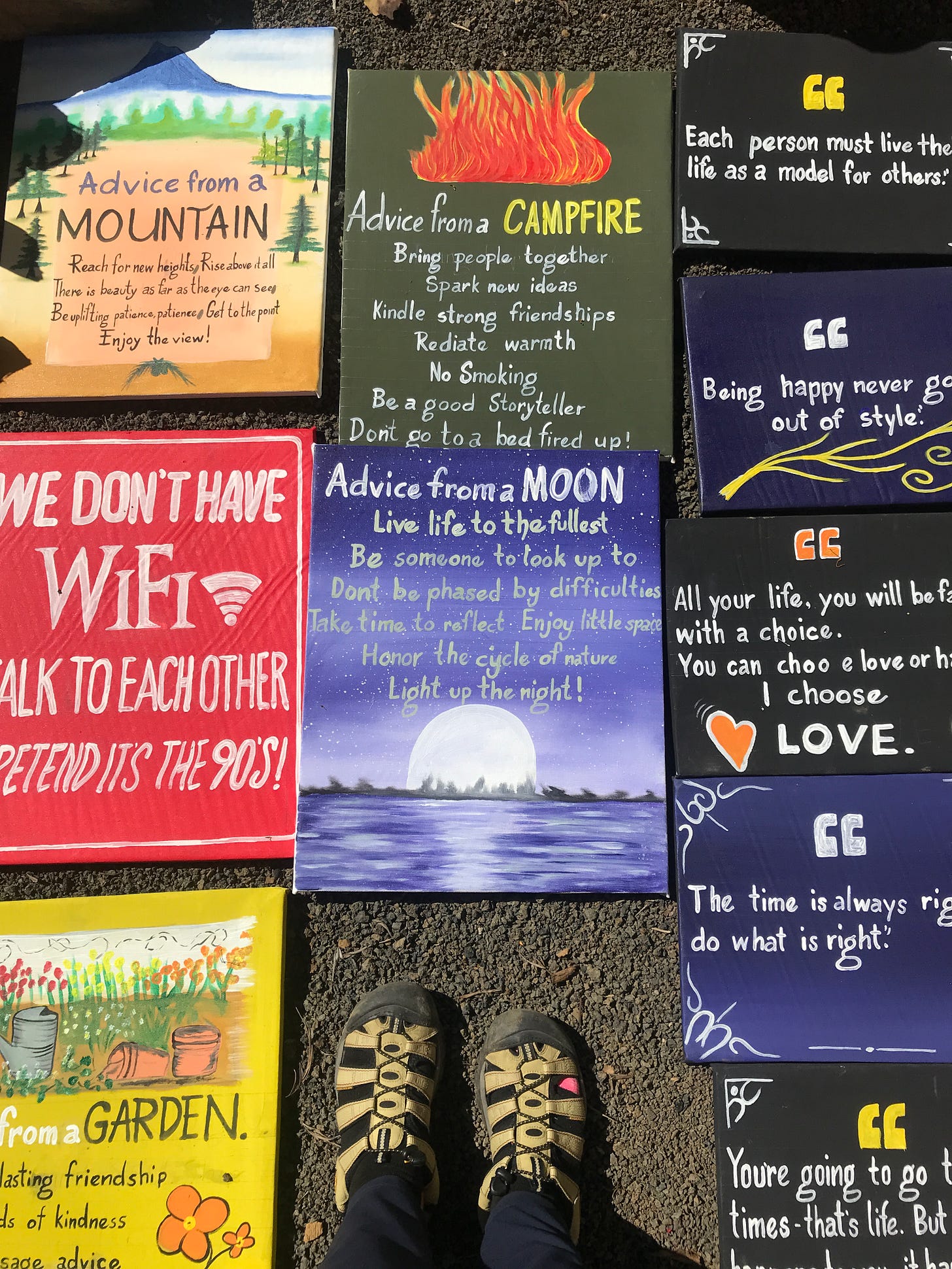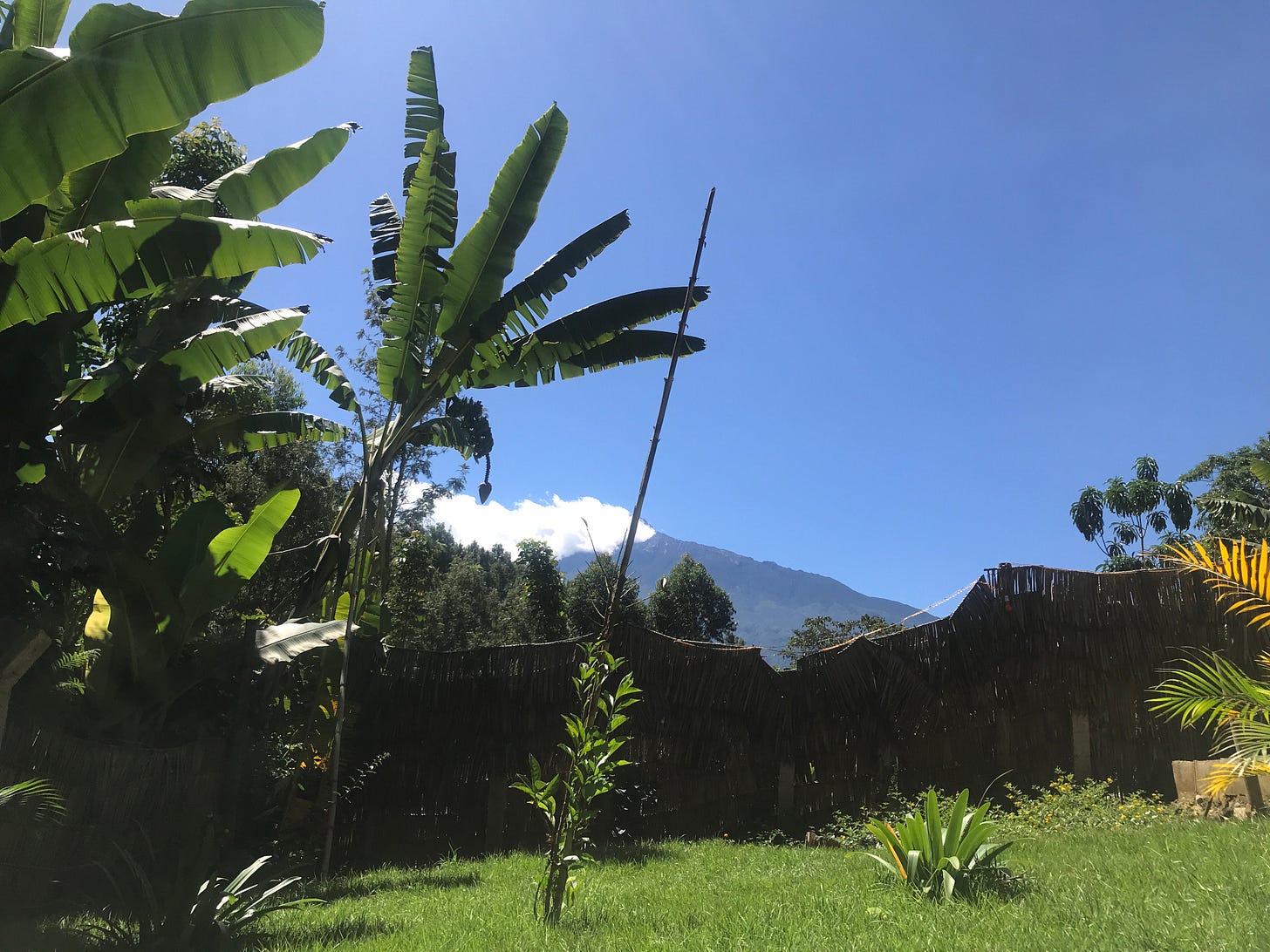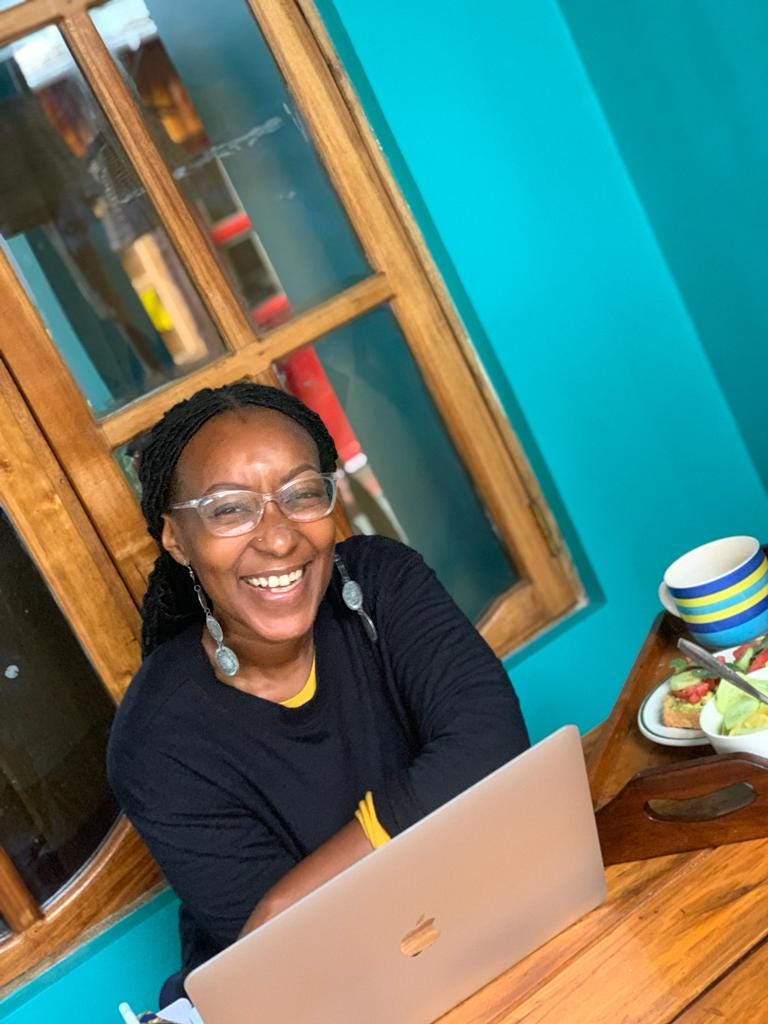the black chameleon 🦎
the road to freedom is full of thorns and fire, yet happy is the one who follows it.-african proverb
A song to remind you of yourself:
Over the past few weeks, I’ve been volunteering at 🍌 Banana Farm Eco Hostel in Ambureni village, Arusha. The first time I visited was to celebrate 🥳 my mother’s 60th circle around the sun. It was a magical few days—infused with banana jam [who knew?], bird 🦜 gazing, and the most intentional design aesthetic I’ve seen in Tanzania. It’s also the first tourist accommodation that I’ve encountered owned by a Black Tanzanian [Maasai to be specific]. This is noteworthy [particularly in the Safari capital of the world] because while Tanzania is predominantly Black, there is a racial and socio-economic hierarchy that caters to Indians, Arabs, and Europeans. Some of this stems from the Arab Slave Trade, but globalization [in my opinion] has also played an integral role in self-actualization [or a lack thereof].
Some of my duties include washing dishes, folding napkins, assisting with meal prep, delivering food waste to my sweet cow friends 🐄, painting 🎨, and because I can’t travel without my JBL Clip 4, I inadvertently become the resident DJ. As part of our evening ritual, I’d ask one of my teammates what genre they’d want to listen to, and Spotify would assist me in curating an array of musical juju1 🎶 that would inspire some dance moves, karaoke, and even a debate about whether Bongo flava artist Diamond Platinumz will ever find contentment in his romantic relationships. It is in these moments, that home is undisputed. It is in these moments, that I am grateFULL to have grown up in a bilingual household. It is in these moments that I remember New England Umoja, a non-profit my parents co-founded with other Tanzanians that was a slice of home-away-from-home. It is in these moments, that like a chameleon, I am able to camouflage.
When I first arrived at the farm, kitchen duty was a time I loathed— having to fold what seemed like hundreds of kitenge2 napkins for ungrateful wazungu3 was not my idea of reconnecting with the land. But, nature humbles you. The village reminds you of what rootedness feels like. Bumpy, coarse, but with enough room for germination🌱.
For many Black Tanzanians, I am an enigma. Unable to understand how on the surface, I can look like them, but fundamentally, move so differently. I used to wonder how they could tell me a part. We’re all Black, I thought. However, in the past few months, it’s been unveiled to me. Whether through tourists at the hostel trying to compartmentalize me into their narrow box of cultural competency, or my cousins bypassing conversations with me to WhatsApp tattle about my foreign tabia4. Because if there is one thing I have learned about my fellow Tanzanians, it is that for many, conflict avoidance is culturally innate. And to be a binti5/mwanamke6 who doesn’t align with their societal aesthetic is the biggest sin of them all. To live in this liminal space is to constantly be in a state of perception. But perceptions are limiting. Especially when you’re already mid-flight ✈️.
As I prepare to leave a community that has now become family, my perception of the work has shifted. What initially felt labor-filled and tedious, is now met with care, attention, and focus. What initially felt personal, is no longer tethered to my sense of belonging. The misconceptions are now received with curiosity and empathy— realizing that for many, I am the first Nenelwa they have ever encountered [which I imagine is quite astonishing 😉]. And while it can be mystifying, it is also an illustration of the possibilities. That there are no consequences to coloring outside the lines. The portrait is actually enhanced, and distinctive. I am no longer contorting to camouflage. Instead, I embrace the ebb and flow—recognizing that all of these lessons are a part of my unlearning. But most of all, I am a forever student, and each person/experience that I have encountered has been a teacher.
If you’ve read this far, gratitude for your attention span. In preparation for tomorrow’s 🌕 full moon in Capricorn, I am journaling a response to Chani’s astrological reflections: God is change7 and so must we. Fly straight into it if you can.
Join me in the pondering, and if the Spirit moves you, share what arises in the comments.
A reminder— as a way to commemorate and honor this liberatory journey, I’ve launched a conversation series called The Liminal Space: Honoring Rites of Passage in a Journey of Self Discovery. Tickets are still available— sign up, here.
In-Flight,
n
wazungu- white people [plural]
tabia- behavior
binti- daughter, girl, young lady
mwanamke- woman
from Octavia Butler’s Parable of The Sower.







when we next reunite, can you PLEASE put me on to banana jam?
this was such a beautiful read - per usual. thank you for sharing the transition from tedious work turned nourishment.
"And while it can be mystifying, it is also an illustration of the possibilities. That there are no consequences to coloring outside the lines."
Thank you for this piece, Nenelwa. This is my intro to your writing. And as a long time friend who wonders where you are in the world and what you're doing, it's great to read about your journey and experiences. This makes me think about how our experiences across the shores to return home can often be met with a bit of shame and ridicule for not knowing enough about the lands of our parents. It makes me giddy thinking about how our experiences and difference can be celebrated (the possibilities)